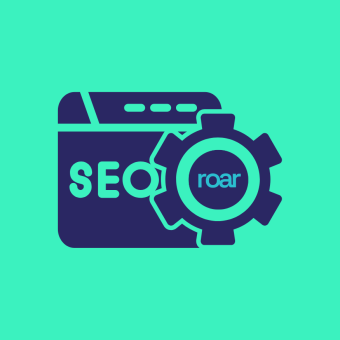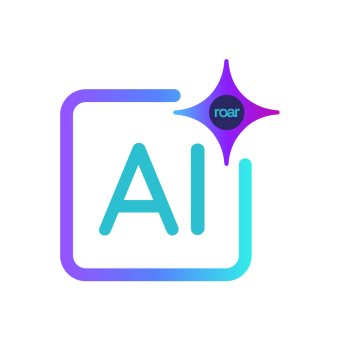In the fast-paced realm of digital marketing, two strategies have emerged as cornerstones of success: content marketing and digital marketing.
Content Marketing VS Digital Marketing
While these terms are often used interchangeably, they represent distinct approaches that cater to different aspects of a business’s online presence. In this comprehensive guide, we’ll dive deep into the intricacies of content marketing and digital marketing, explore their differences, weigh their pros and cons, and determine which industries each strategy is best suited for.
What is Digital Marketing?
Digital marketing encompasses a broader range of strategies and tactics aimed at promoting a business’s products or services across digital channels. This includes various online advertising methods such as search engine marketing (SEM), pay-per-click (PPC) advertising, social media marketing, email marketing, and more. The overarching goal of digital marketing is to enhance brand visibility, drive traffic, and generate conversions.
What is Content Marketing?
Content marketing is a strategic approach that involves creating and distributing valuable, relevant, and consistent content to attract and engage a target audience. This content can take various forms, such as blog posts, articles, videos, infographics, podcasts, and more. The core objective of content marketing is to establish a brand’s authority, build trust, and nurture a lasting relationship with potential customers.
Content marketing isn’t just a buzzword; it’s a proven strategy. According to the Content Marketing Institute, 91% of B2B marketers use content marketing to reach their audience. Moreover, B2B companies that blog generate 67% more leads than those that don’t. By consistently delivering informative and valuable content, businesses can position themselves as industry leaders and foster a community of engaged followers.
Content Marketing Matrix
The content marketing matrix is a strategic framework that helps businesses organise and diversify their content efforts to effectively engage their target audience across various stages of the buyer journey and multiple channels. It involves mapping content types against different buyer personas and stages of the sales funnel. For instance, in the awareness stage, businesses might focus on creating blog posts and infographics that address industry challenges. As prospects move to the consideration stage, more in-depth content such as e-books and webinars can provide comprehensive solutions.
Content Marketing Channels
B2B content marketing channels are essential for reaching and engaging business professionals effectively. Here are some of the top B2B content marketing channels:
Blogs:
Maintaining a well-crafted blog is crucial. It allows you to share industry insights, thought leadership, and educational content with your audience. Blogs establish your authority and provide value to your readers.
Social Media:
Platforms like LinkedIn, Twitter, and even Facebook can be powerful B2B content distribution channels. Share your content, engage in discussions, and connect with industry professionals and potential clients.
Email Marketing:
Email remains a highly effective channel for delivering targeted content directly to your audience’s inbox. Segment your email lists to send personalised content that caters to each recipient’s interests and needs.
Webinars and Online Events:
Hosting webinars and virtual events is an excellent way to engage your audience in real time. These marketing channels enable you to showcase your expertise, interact with attendees, and answer their questions directly.
Podcasts:
Podcasts are gaining traction as a content marketing channel for B2B businesses. They allow you to deliver content in an easily digestible format that professionals can consume while multitasking.
Video Marketing:
Video content is engaging and memorable. Create explainer videos, tutorials, case studies, and even live streams to connect with your audience visually.
White-papers and E-books:
In-depth resources like white-papers and e-books are valuable for B2B audiences seeking comprehensive insights. You can gate these resources behind a sign-up form to capture leads.
Guest Posting:
Contributing guest posts to respected industry publications can expand your reach and establish your brand as an industry thought leader.
LinkedIn Publishing:
LinkedIn’s publishing platform allows you to share long-form content directly with your professional network. This can enhance your personal authority and visibility within your industry.
SlideShare:
If your content involves presentations or slide decks, SlideShare is a content marketing channel to consider. It’s particularly popular for sharing B2B-oriented presentations.
Interactive Content:
Quizzes, assessments, calculators, and interactive infographics can engage B2B audiences by offering personalised insights or solutions.
Content Hubs on Your Website:
Create dedicated content hubs or resource centres on your website to organise and showcase your content in a user-friendly manner.
Selecting the right mix of channels depends on your target audience, industry, and goals. A well-rounded approach that leverages multiple channels can help maximise your B2B content marketing efforts and reach a wider and more engaged audience.
Content Marketing For Small Businesses
Content marketing for small businesses is a powerful strategy that can be used despite limited budgets and lack of brand recognition.
In a small B2B business, content marketing can be approached smartly by focusing on niche topics relevant to the industry, showcasing expertise, and engaging the target audience. By creating informative blog posts, sharing valuable insights on social media, and producing targeted email campaigns, small businesses can establish their brand authority and grow it.
Content marketing’s cost-effective nature allows small businesses to compete on a level playing field, showcasing their industry knowledge even without a hefty advertising budget. Through consistent and valuable content creation, small B2B businesses can overcome hurdles, improve brand recognition, and position themselves as go-to resources within their niche.
Content Marketing Consultant
A content marketing consultant is a professional who specialises in providing strategic guidance and expertise in creating, implementing, and optimising content marketing strategies for businesses. They help develop tailored plans to enhance brand visibility, engagement, and conversions through high-quality and relevant content.
Whether or not you need a content marketing consultant depends on your goals, resources, and expertise. If you lack the time, experience, or in-house team for effective content marketing, a consultant can provide valuable insights, save time, and ensure a more impactful strategy.
You can find content marketing consultants through online platforms like LinkedIn, freelance marketplaces, or specialised marketing agencies that offer consulting services. Research their portfolios, reviews, and expertise to ensure a good fit for your business needs.
Differences Between Content Marketing Vs Digital Marketing
While both content marketing and digital marketing aim to increase visibility and drive conversions, they differ significantly in their approaches and core focuses. Content marketing is rooted in storytelling and providing valuable information that resonates with the audience on a deeper level. This approach centres around building relationships and fostering trust through education and engagement.
Digital marketing, on the other hand, is more transactional in nature. It emphasises targeted promotional efforts to capture the immediate attention of the audience and prompt them to take a specific action. This action could be signing up for a webinar, downloading an ebook, or making a purchase.
To illustrate, consider a B2B software company. Through content marketing, the company might publish in-depth articles and videos on their website that explain complex software concepts to their audience. This establishes the company’s authority and attracts prospects interested in learning more. In contrast, digital marketing for the same company might involve running a PPC campaign for a new software release, targeting industry-specific keywords to drive immediate downloads and purchases.
Which is Better: Content Marketing Vs Digital Marketing?
The battle of content marketing vs digital marketing is a bit like asking whether a painter’s brush is better than a sculptor’s chisel. The effectiveness of each strategy depends on the task at hand and the goals of the business.
Content marketing is like the foundation of a building. By consistently delivering value and relevant content, businesses can establish a loyal audience and create a brand identity that resonates with their values. According to the Content Marketing Institute, content marketing costs 62% less than traditional marketing and generates about three times as many leads. It’s an investment in the long-term growth and reputation of a business.
On the other side of the spectrum, digital marketing serves as the catalyst for immediate growth. Paid ads, social media promotions, and email campaigns can drive traffic to a website, generate leads, and boost sales in a much shorter time frame. For instance, Google Ads can increase brand awareness by 80%. However, this approach might not create the same long-term relationships that content marketing fosters.
If you’re stuck not knowing if content marketing or digital marketing is right for you, get in touch with Roar. Our friendly team of experts is here to dive deep into your business and brand, tailoring a digital marketing strategy just for you. We’ll offer advice, management and design services that increase your leads and revenue.
Industries UsingContent Marketing Vs Digital Marketing Heavy Industries
The choice between content marketing and digital marketing often hinges on the industry and the nature of the products or services being offered. Content marketing shines in industries that demand in-depth knowledge, expertise, and a high degree of trust-building. B2B industries such as technology, finance, healthcare, and professional services can benefit immensely from content marketing’s ability to educate, inform, and guide potential clients through complex decision-making processes.
In these industries, businesses often face the challenge of explaining intricate concepts to potential clients. For example, a cybersecurity firm could use multiple content marketing channels to publish whitepapers and articles that demystify cybersecurity threats and solutions. By demonstrating expertise and offering valuable insights, the firm can build credibility and attract businesses seeking robust security solutions.
Conversely, digital marketing excels in industries where immediate actions and transactions are pivotal. E-commerce, retail, travel, and event management industries heavily rely on the full range of digital marketing to promote time-sensitive offers and drive sales. Imagine an e-commerce company launching a flash sale on their website. Through targeted social media ads and email campaigns, they can quickly generate traffic and conversions, leveraging the urgency of the sale.
B2B Content Marketing Example
Hubspot: A Content Marketing Powerhouse
When it comes to covering the content marketing matrix, HubSpot is a trailblazer that has consistently set the bar high. Known for its inbound content marketing methodology, HubSpot’s content strategy is a masterclass in delivering value, building trust, and nurturing lasting relationships with its audience.
Diverse and Valuable Content Formats:
HubSpot covers an extensive range of content formats across a range of content marketing channels, ensuring that their audience gets information in the way they prefer. Their blog is a treasure trove of articles on marketing, sales, customer service, and more. They offer e-books, templates, and guides that provide actionable insights for professionals across industries.
The HubSpot Academy features free online courses, certifications, and video tutorials, further solidifying their position as an educational hub.
Informative Blogging Strategy:
HubSpot’s blog is a cornerstone of their content marketing success. They consistently publish well-researched, data-driven articles that address pain points and challenges faced by marketers and business owners. For example, their article “How to Use the Best Time to Post on Facebook” not only provides insights but also offers valuable data-backed recommendations.
Data-Driven Insights:
One of HubSpot’s strengths is its ability to present data and insights in an engaging and understandable manner. Their annual “State of Inbound” report offers comprehensive industry data that informs marketers about the latest trends, challenges, and opportunities. This marketing content not only positions HubSpot as an industry authority but also provides actionable takeaways for its readers.
Human-Centred Stories:
HubSpot understands that people connect with people. They regularly feature customer success stories and case studies that highlight real-world examples of businesses benefiting from their services. By showcasing these stories, HubSpot effectively demonstrates the tangible impact of their solutions on businesses of all sizes, highlighting how important content marketing is for small businesses and large ones.
Video Content Mastery:
HubSpot’s video content is another feather in their content marketing cap. Expanding from the common content marketing channels, their YouTube channel is brimming with educational videos, tutorials, and thought leadership pieces. Their “HubSpot Academy” series offers short, insightful videos that cater to busy professionals looking for quick tips and strategies.
Impressive Statistics:
- Hubspot receive more than 7 million visits every month.
- Generating roughly 400,000 leads from just their website alone.
HubSpot’s content marketing strategy is a testament to the effectiveness of providing value, education, and insights to an audience. Through their diverse content formats, data-driven insights, and engaging storytelling, HubSpot has carved a niche as a trusted resource for marketers and businesses.
Digital Marketing Vs. Content Marketing
In the grand landscape of B2B digital marketing, the perceived rivalry between “Digital Marketing Vs. Content Marketing” is somewhat misleading. These strategies are not adversaries; rather, they are integral components of a successful online presence.
The content marketing matrix lays the groundwork by building brand credibility and fostering relationships with potential clients. It’s a gradual process that yields long-term results, as indicated by the fact that content marketing generates three times as many leads as traditional marketing, according to DemandMetric.
Digital marketing, in contrast, acts as the ignition for growth. Through targeted advertisements, businesses can rapidly expand their reach, attract traffic, and convert prospects into leads or customers. A prime example is HubSpot, which achieved a 28.5% conversion rate on their Facebook ads.
The true magic occurs when these strategies are seamlessly integrated. By harnessing the strengths of both content marketing and digital marketing, B2B businesses can create a potent synergy that resonates with their audience, generates traffic, and ultimately drives the conversions that fuel success.
In essence, content marketing and digital marketing are not mutually exclusive; they are complementary forces that, when wielded effectively, result in a comprehensive and impactful online presence. Instead of pitting them against each other, forward-thinking marketers embrace both strategies to maximise their B2B marketing efforts.




